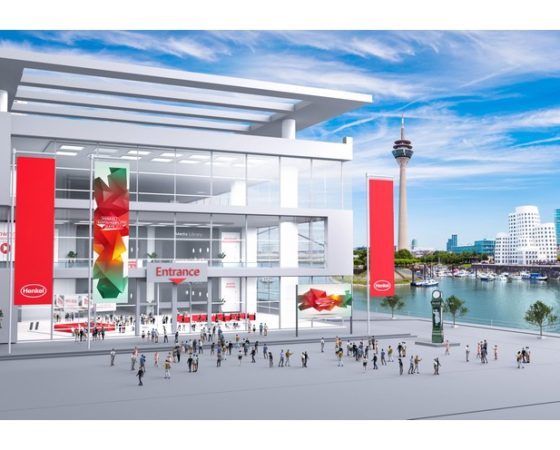February 01, 2022
Henkel outlines key trends shaping packaging’s sustainable future in 2022
Driving sustainability in the flexible packaging and paper markets in 2022
Düsseldorf – 2022 will see the packaging industry continue to adopt a sustainability-first mindset but success will demand greater cross-industry cooperation and transparency, predicts Henkel Adhesive Technologies. The challenges for the year ahead were explored at the close of 2021 by Henkel alongside manufacturers and other experts from across the entire packaging and consumer goods supply chain at the second Henkel Sustainability Days.

This ground-breaking virtual conference brought together representatives from over 900 companies, representing about 90 nations, including experts and insiders from across the industry. Participants included raw material suppliers, to converters and OEMs, associations, retailers and recyclers – to discuss the opportunities and challenges involved in achieving greater sustainability.
“As a unique forum for the whole industry, our Sustainability Days have helped to bring focus to some of the key topics facing the industry in 2022 – and set the agenda for how we can work together as an industry to forge real change,” explains Brandi Schuster, Head of Market and Customer Activation for Packaging Adhesives at Henkel.
The new normal has arrived

In 2022, we are already living in a new world: Globally, legislative pressures are increasing, while many retailers are changing their business strategies to include their own recyclers, and working to balance demand for greater sustainability with growing demand for packaging. Global Head of Packaging Adhesives Business at Henkel Tilo Quink explains that these trends represent a paradigm shift: “Our Sustainability Days revealed that the ‘next normal’ for packaging is already here. It is our responsibility as leading players in the value chain to not only understand today’s packaging challenges, but to also deliver sustainable solutions that will enable all players downstream – not just our direct customers – to remain competitive in the future.”
Holistic approaches are essential to avoid tunnel vision
In 2022, the industry must adopt a comprehensive outlook. A focus on circular economy and design for recycling must now be considered “business as usual.” However, just as important are aspects that address CO2 reduction and dematerialization. Similarly, Quink, warns against adopting too great a focus in any one area: “We are seeing tremendous energy directed towards sustainability across the packaging industry but it’s vital to avoid tunnel vision and seeing any one method as being the ultimate answer. For example, within the European market there is a strong focus on reuse, while the US is more focused on compostability and biodegradability. Yet, neither provide a blanket solution and neither are mutually exclusive. A fact-based evaluation of all methods and their relative environmental consequences will be vital.”

Adopt a “transparency-first” mindset
To achieve true sustainability, transparency in certification and testing methods are necessary. Arne Jost, Senior Manager Circularity Assessment and Validation for Packaging Adhesives at Henkel, explains: “It’s vital to move towards more open and transparent practices as an industry. When one part of the value chain fails, we all do – but conversely working together is the key to success. Transparency also means transparency for the consumer, with clarity on how to properly dispose of different kinds of packaging after use.”
Suppliers must step up with more sustainable solutions
Brands and packaging manufacturers seeking to further reduce the environmental impact of their products should expect an equal focus from their own suppliers. “As a leading supplier and partner to the packaging industry, we believe that we can play a key role in helping our customers take on these challenges – and are challenging ourselves to become more sustainable in our own production and process,” Quink says. “In 2022, brands and packaging manufacturers can and should expect their supply chain to adopt this outlook.” At Henkel, a longstanding strategic commitment to sustainability has delivered high performance solutions with a reduced environmental impact. These include UV curing technologies with lower energy consumption that are now even more accessible thanks to the ramping up of production capacity in Europe and new US production plants coming online in 2022. Henkel is also working to reduce use of resources and waste through measures such as bulk delivery of liquid adhesives via road tankers to avoid packaging.
All presentations from the Henkel Sustainability Days are available on demand here.
About Henkel
Henkel operates globally with a well-balanced and diversified portfolio. The company holds leading positions with its three business units in both industrial and consumer businesses thanks to strong brands, innovations and technologies. Henkel Adhesive Technologies is the global leader in the adhesives market – across all industry segments worldwide. In its Laundry & Home Care and Beauty Care businesses, Henkel holds leading positions in many markets and categories around the world. Founded in 1876, Henkel looks back on more than 140 years of success. In 2021, Henkel reported sales of more than 20 billion euros. The company employs about 53,000 people globally – a passionate and highly diverse team, united by a strong company culture, a common purpose, and shared values. As a recognized leader in sustainability, Henkel holds top positions in many international indices and rankings. Henkel’s preferred shares are listed in the German stock index DAX. For more information, please visit www.henkel.com.
origin: published by henkel.com

